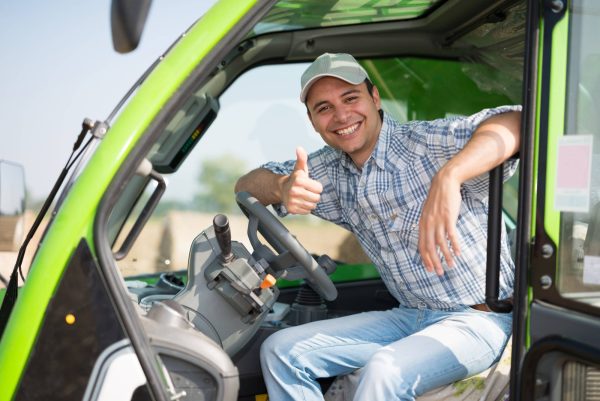Legal age requirements for driving tractors in the UK
The question “What age can you drive a tractor in the UK?” has different answers depending on where you want to drive. According to current UK regulations, you can drive a tractor on private farmland from age 13, but only after completing certified training. For public roads, you must wait until you’re 16, when you can obtain your first provisional license for agricultural vehicles.
Tractor driver training requirements in the UK
For those aged 13-15 looking to operate tractors on private land, formal training is mandatory. This typically involves completing a certified course that covers safety fundamentals, basic operations, and risk awareness. LANTRA and DVSA-approved training providers offer these essential courses throughout the UK.
Provisional license and trailer training

At 16, you can start your journey toward public road driving by obtaining a category F provisional license. There are important restrictions to consider: both your tractor and any trailer you tow must not exceed 2.45 meters in width. When it comes to trailers, you’re limited to those with either two wheels or four close-coupled wheels. You must also avoid driving in areas with a 30 mph speed limit.
Full license entitlements and progression
When you turn 17, you have two routes to gain full tractor-driving privileges. The first option is to pass a standard car driving test (category B), which automatically includes category F entitlement. Alternatively, you can take a standalone tractor test specifically for category F. Both options allow you to drive larger tractors and operate more complex trailer combinations, though additional training is strongly recommended before handling more challenging vehicles or implements.
Advanced tractor-trailer driver training
For those interested in professional agricultural work, specialised tractor-trailer training becomes essential. This comprehensive training covers advanced trailer manoeuvring, load security and weight distribution, and safe coupling and uncoupling procedures. You’ll also learn about trailer braking systems and the specific regulations governing agricultural trailers on public roads. Reversing a large agricultural trailer is similar to reversing a semitrailer.
Safety requirements and best practices
Young drivers must maintain vigilant attention to safety measures. This includes performing daily vehicle checks before operation and understanding speed limits, which are typically 25 mph for most agricultural vehicles. Proper use of warning beacons and lighting is essential, as is maintaining clean mirrors and windows for optimal visibility. Young drivers must also develop a thorough understanding of how vehicle width and length affect operation on public roads.

Insurance and employment considerations
While the legal age to drive a tractor in the UK starts at 16 for public roads, employers and insurance companies often set their own additional requirements. It’s crucial to check insurance policies carefully and complete any additional training required by employers. Maintaining accurate records of your training and qualifications will help demonstrate your competency, and staying updated with changing regulations ensures continued compliance.
Remember that these age-based regulations are designed to allow young people to gain experience progressively while ensuring safety for all road users. Whether you’re learning for farm work or considering a career in agriculture, proper training and adherence to these requirements are crucial for success.
For the most up-to-date information on training providers and certification requirements, consult the DVLA website or speak with local agricultural training centres.
